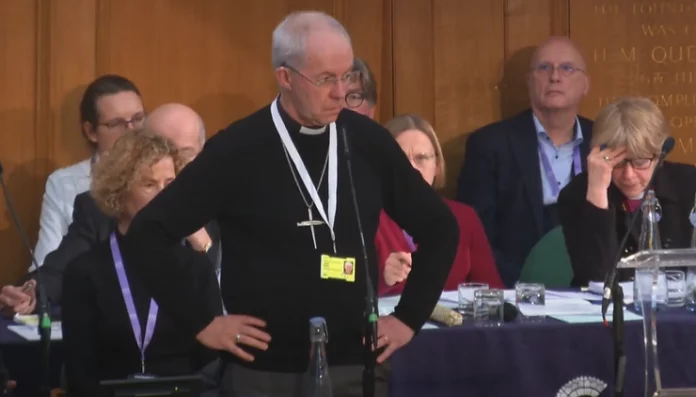s well as paid parish vicars and curates — like me — and chaplains in places like schools and prisons, the Church of England would not function without a platoon of unpaid, volunteer priests, who have taken at least three years of part-time third-level courses, but who work in secular jobs. The equivalent of special constables or territorial soldiers, they celebrate the Eucharist on Sundays, but during the week work as accountants, doctors, lawyers, and occasionally non-graduate jobs. Although the idea came from French Catholicism’s “worker priest” movement of the post-War years, in the C of E they are drawn mainly from the upper bourgeoisie. This is not necessarily a bad thing — many are highly intelligent and motivated people who make superb preachers and teachers and bring a wealth of life experience.
The most high-profile of these “Ministers in Secular Employment”, as they are officially termed, is now undoubtedly Paula Vennells, the disgraced former Post Office boss. While it is possible for priests initially recruited as unpaid volunteers to later move into paid roles, sometimes senior ones, it is unprecedented that Vennells was one of three candidates interviewed as a possible Bishop of London in 2017, despite never having held an actual paid job in the Church.
That says much about the C of E’s obsession with management and “leadership” as a panacea for the problems of institutional decline. Since around 1990, the C of E has been strangely convinced that its crisis of attendance and vocations was caused by poor management.
One feature of this obsession is that since the mid-2010s, all up-and-coming clergy talent-spotted as potential bishops, Cathedral deans, or similar top clergy are now expected to attend a bespoke course on management theory and issues such as the role of the Church in a “modern liberal democracy” — a sort of clerical MBA, and not necessarily a bad idea in principle. Ironically, as a priest with top-level business experience, Vennells was one of the teachers on this course. In the main however, it was taught by the sort of people who teach secular MBA courses, such as organisational psychologists and management theorists.
Asking an organisational psychologist to offer suggestions on fixing the C of E’s crisis is like asking a plumber to tell you how to fix your crashed hard drive. They may be good at what they do, but they don’t have the right skillset for the job. What actually afflicts the C of E, and indeed pretty much all of Western Christianity, isn’t a management crisis, but a narrative crisis. Put simply, people no longer believe the things they used to believe about God, Jesus Christ, and the Church during the millennium-and-a-half (think about that for a moment!) when England was part of a thriving multi-national Christendom.
Even the Church lost confidence in its story when the modernist paradigm seemed triumphant. Christendom and modernism dueled for well over a century, with the Church usually having the upper hand, until Christendom suddenly capitulated in the early 1960s. Beyond mere capitulation, the Church often attempted to assimilate modernism. Those Christians, congregations, and denominations that did so the most thoroughly usually found their capacity to transmit the Faith to the next generations greatly reduced.
High Modernism in its post-War heyday was marked by strong confidence in scientific, technological, and moral progress; deference to expertise and technique — or the verisimilitude of them; faith that humanity could master nature — including human nature; and a disregard for local variation, and inherited organically-developed concepts and structures.
What jumps out from the topics and teachers in the course Vennells taught on is a High Modernist faith in technique, expertise, and quantitative measures — or at least in people who can bullshit effectively about them.
But we don’t live in 1963 anymore. …
Read it all in The Critic










